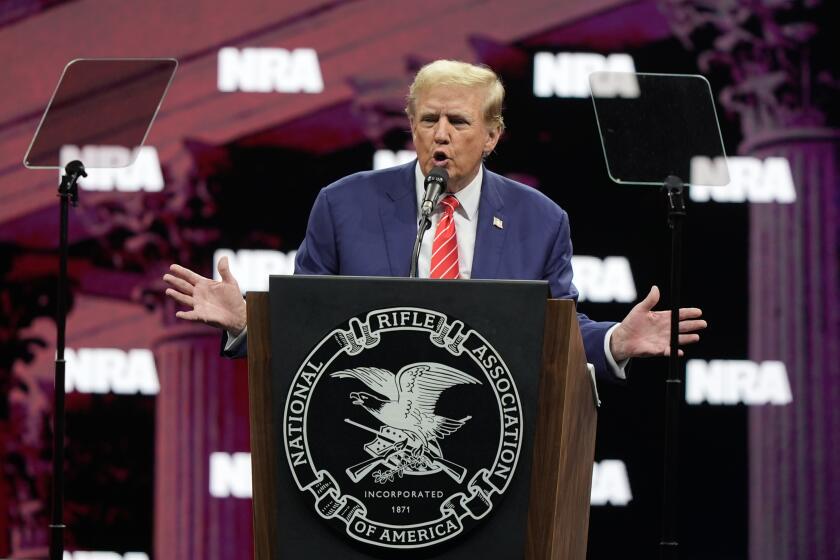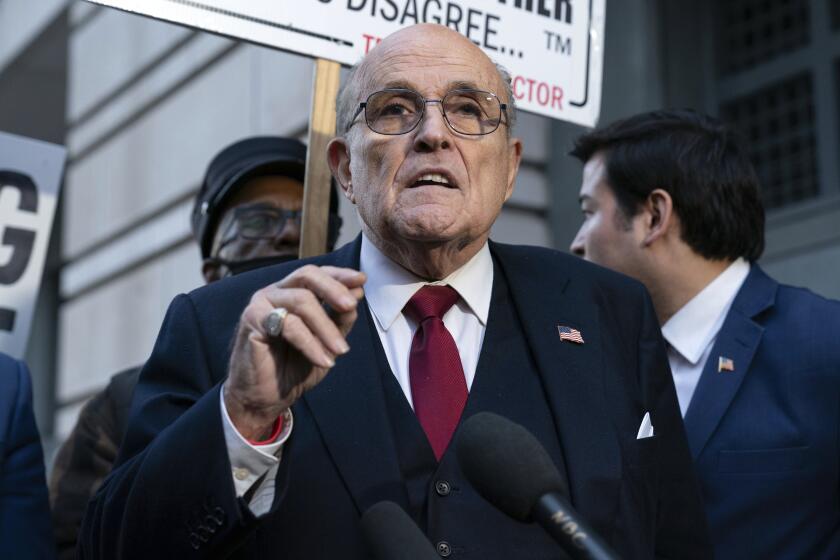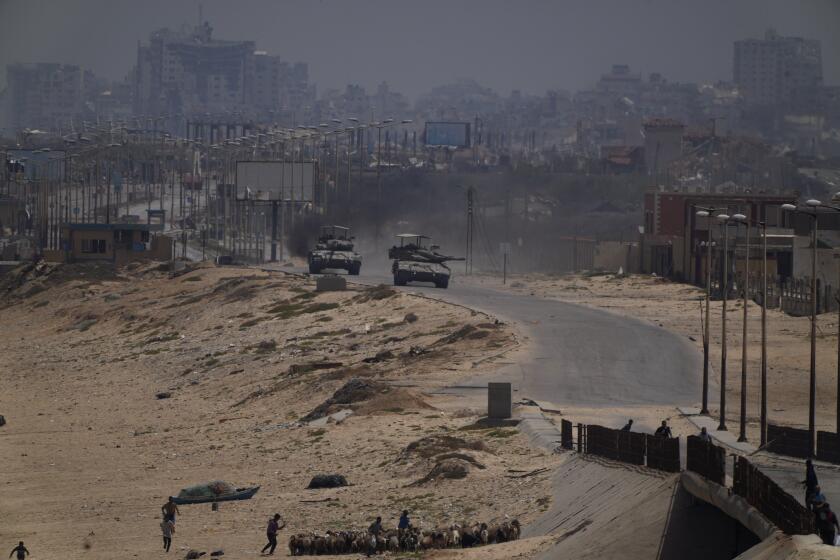S. Africa Forbids Calls to Release Political Detainees
The government Saturday made it illegal for any person to call--either orally or in writing--for the release of security prisoners detained without charges, or even to display “disapproval” of such detentions.
Legal advisers said the regulations could be interpreted to forbid public prayers for those detained.
The sweeping new restrictions, issued by Police Commissioner Johan Coetzee, prohibit acts that could be construed as a “symbolic token of solidarity with or in honor of” political detainees, including the display of “Free the Children” bumper stickers that adorn tens of thousands of cars owned by whites and blacks in South Africa.
Violation of the ban is punishable by up to 10 years’ imprisonment.
Described by anti-apartheid activists as “Draconian,” “horrific” and illegal, the new restrictions appear designed to silence a national campaign demanding the release of an estimated 13,000 to 20,000 political detainees, including 256 children under the age of 16 the government says it is holding for alleged security offenses.
Several leading anti-apartheid campaigners said they plan to defy the ban.
Anglican Archbishop Desmond Tutu, winner of the 1984 Nobel Peace Prize, announced that he is organizing a special service in Cape Town on Monday to pray publicly for the release of detainees in defiance of the new ban.
Tutu characterized the new restrictions as “power gone utterly crazy.”
White liberal Helen Suzman, a member of Parliament who has protested the detentions while campaigning for the May 6 whites-only election, said: “I cannot allow it to affect my general election campaigning. I’ve been against detention without trial since it was first introduced in South Africa in 1963. It’s a total abrogation of the rule of law.
“I intend to continue to be outspoken on detainees because I have a duty to my constituents to do so,” said Suzman, who is law and order spokeswoman for the liberal opposition Progressive Federal Party.
The defiance campaign by leading figures in South African politics presents the government of President Pieter W. Botha with a dilemma: It can either strictly enforce the ban in the face of certain condemnation by the international community, or it can ignore the defiance and inevitably encourage further resistance.
Prohibitions Listed
By far the toughest measure imposed to curtail freedom of speech on a specific issue since a state of emergency was declared last June 12, the new restrictions prohibit:
-- Participation in “any campaign, project or action” aimed at accomplishing the release of persons detained without charges under the sweeping 1982 Internal Security Act.
-- Signing or supporting any petition calling for the release of detainees.
-- “The calling, either orally, in writing, by telegram or in any other way whatsoever, upon the government . . . to release the said persons or person from such detention.”
-- Signing or supporting any document in which detention without charges is “protested against or disapproved.”
-- The exhibition in public of any clothing, sticker or poster “protesting against or disapproving of” detentions.
-- The attending of any gathering protesting detention or honoring detainees.
-- “The performance of any act as a symbolic token of solidarity with or in honor of the said persons or person.”
Lawyers said the last clause could rule out church prayers for the welfare of detainees.
Published in Gazette
The orders, which took effect at midnight with publication in the official government Gazette, and which were not considered by any parliamentary body, amended the definition of “subversive statements” contained in security regulations and press restrictions issued by the government last Dec. 11.
Coetzee said the broadening of those restrictions covers acts that have “the effect of threatening the safety of the public, or the maintenance of public order, or of delaying the termination of the state of emergency.”
They came slightly more than a month after regulations were invoked that prohibit the publication of advertisements and articles that the government had said called for the release of detainees.
Publication of such advertisements or articles had previously been outlawed, but the new rules go far beyond the original ban in suppressing individual criticism of the policy of detention without charges.
There have been varying estimates of the number of South Africans--mostly black--who have been detained without charges since the imposition of the emergency.
Over 13,000 Detained
On Feb. 12, Adriaan Vlok, the minister of law and order, presented to Parliament a new list of nearly 4,000 detainees, bringing to almost 13,500 the number of people jailed without charges for more than 30 days. Various anti-apartheid monitoring groups maintain that between 20,000 and 30,000 persons have been detained.
More to Read
Start your day right
Sign up for Essential California for news, features and recommendations from the L.A. Times and beyond in your inbox six days a week.
You may occasionally receive promotional content from the Los Angeles Times.






